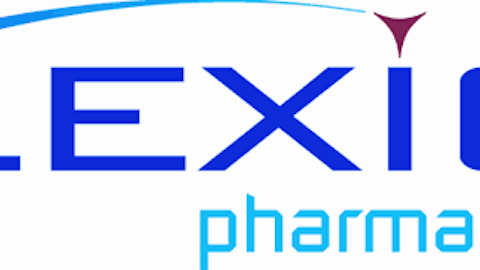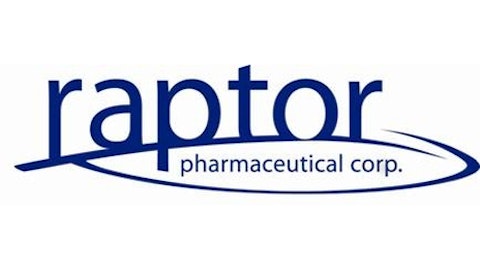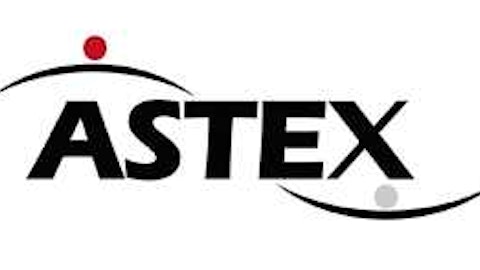Orphan drug companies are an exciting new class in the healthcare sector — with good and bad investment opportunities — let’s look at the differences.
What is an Orphan?
The word “Orphan’ in biotechnology creates excitement! It means that a company has more years of exclusivity on a product and it also indicates that a company’s technology is beyond the norm.
Orphan indications are not earned easily, as companies must develop products that successfully treat diseases with no treatment options, which in turn are more difficult to develop.
Moreover, these Orphan designations are mostly awarded on drugs that treat small populations, but sometimes, these drugs can create massive amounts of revenue, and large valuations are given to the developing company.
Orphan designations at their fundamental best
Big Pharma has been replaced, and investors now prefer a new class of innovating companies that develop Orphan drugs. Two of the more popular in this space include Alexion Pharmaceuticals, Inc. (NASDAQ:ALXN) and BioMarin Pharmaceutical Inc. (NASDAQ:BMRN).
Alexion Pharmaceuticals, Inc. (NASDAQ:ALXN) has one FDA approved product, an Orphan drug called Soliris, which might be the best example in the market. Soliris was approved to treat a progressive and life-threatening disease characterized by the excessive destruction of red blood cells, but has since been developed to treat other life-threatening diseases and is still being tested in seven clinical studies.
Alexion Pharmaceuticals, Inc. (NASDAQ:ALXN) has reported $1.23 billion in sales from Soliris – as an Orphan designation gives a company premium pricing – and many believe it can reach peak sales over $3.5 billion. As Alexion Pharmaceuticals, Inc. (NASDAQ:ALXN) continues to develop Soliris for rare diseases, it continues to earn additional Orphan designations, which we saw recently. As a result, with a blockbuster product and many years of exclusivity, the market has awarded Alexion Pharmaceuticals, Inc. (NASDAQ:ALXN) with an industry-leading 64 times earnings and 14 times sales valuation.
On the other hand, BioMarin Pharmaceutical Inc. (NASDAQ:BMRN)’s clinical product GALNS – which treats a rare genetic condition called Morquio A Syndrome that affects just one in every 200,000 births – has also received an Orphan designation and should be available in the market within a year.
Much like Alexion Pharmaceuticals, Inc. (NASDAQ:ALXN), the use beyond Morquio A Syndrome is wide for GALNS, as analysts predict peak sales of nearly $500 million. Therefore, BioMarin Pharmaceutical Inc. (NASDAQ:BMRN) currently trades at eight times future sales when considering the fundamental impact of GALNS.
When Orphan status tricks the market
While both BioMarin Pharmaceutical Inc. (NASDAQ:BMRN) and Alexion trade at premiums to other pharma companies such as Eli Lilly & C0. (NYSE:LLY), we can also see a difference in value between the two companies. BioMarin Pharmaceutical Inc. (NASDAQ:BMRN) is more diversified as a company, yet with only one product, Alexion trades at a higher premium (if considering future GALNS sales) versus BioMarin Pharmaceutical Inc. (NASDAQ:BMRN). The reason for this premium is potential peak sales, which must be considered when valuing Orphan companies.
Take Raptor Pharmaceutical Corp. (NASDAQ:RPTP) for example, it exploded with gains of 26% after being granted seven-years of Orphan exclusivity for its drug Procysbi. In short, Procysbi is a 12 hour treatment, rather than six hour treatment, for nephropathic cystinosis, which is a lysosomal storage disorder that causes widespread tissue and organ damage.
Much like Morquio A Syndrome, this disease has an occurrence of just one in every 200,000 people, but does not have the expanded pipeline potential of GALNS or Soliris. Now, Raptor Pharmaceutical Corp. (NASDAQ:RPTP) is seeking FDA approval, which it most likely will receive.
The problem for Raptor lies in its upside. The drug has U.S. sales potential of just $30 million, and $50 million globally; if priced at $75,000. After the stock’s large gains, it is trading at 11 times peak global sales, which is greater than that of BioMarin.
As shown with BioMarin and Alexion, higher multiples are awarded to Orphan drugs that have greater potential. The Orphan indication itself is great for a company, but if the drug does not have the potential to spread with new indications then it might not prove itself to be all that lucrative for investors.
In my opinion, Raptor has gotten far ahead of itself with a market cap of $570 million, and has priced in all of its potential upside.
Conclusion
When you are assessing this newer yet exciting class of Orphan drug companies, you have to consider the impact of peak sales and expansion. Remember, one indication alone is not going to produce hundreds of million in sales when treating rare diseases, but a collection of indications will produce longer periods of exclusivity and large revenue.
If you are looking to invest in this space, you need to seek such companies that have these crucial elements in their development, and avoid those such as Raptor that have traded higher on the “Orphan” name alone.
The article What Makes a Good Orphan Drug Investment? originally appeared on Fool.com and is written by Sherrie Stone.
Sherrie Stone has no position in any stocks mentioned. The Motley Fool recommends BioMarin Pharmaceutical. Sherrie is a member of The Motley Fool Blog Network — entries represent the personal opinion of the blogger and are not formally edited.
Copyright © 1995 – 2013 The Motley Fool, LLC. All rights reserved. The Motley Fool has a disclosure policy.






